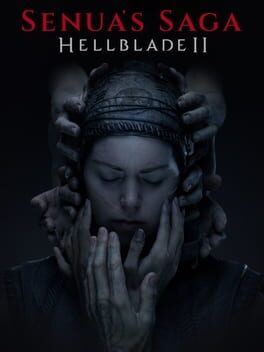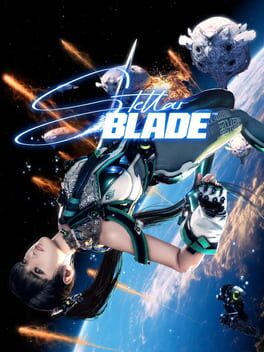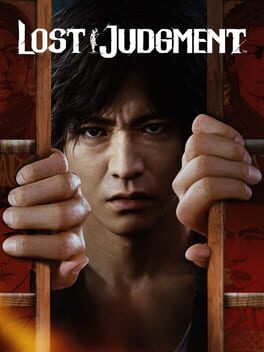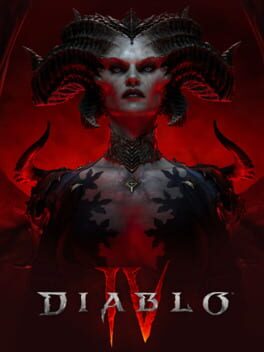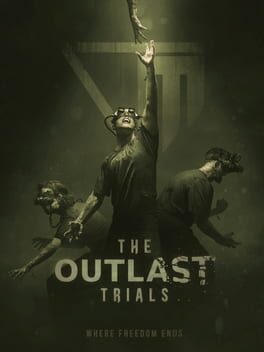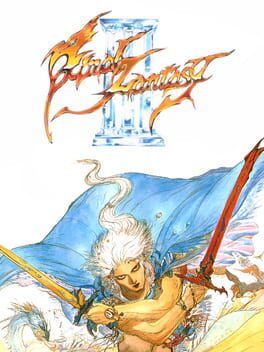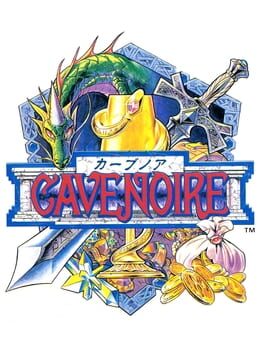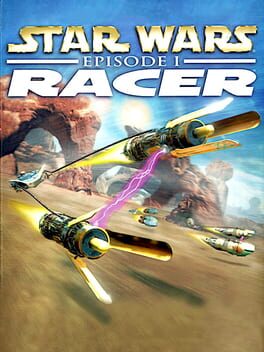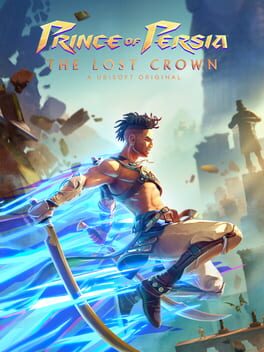Jacksbm99
88 Reviews liked by Jacksbm99
Having rolled credits, I still don't understand why this game exists. What was the intention behind this game? When you make a sequel to a video game how do you evolve from the original? What do you fix, what do you do differently, what do you add? Hellblade 2 does none of those things and instead doubles down on the design template of the original game - which was released 7 years ago. What we're left with is essentially the first game again yet somehow worse in some areas.
I understand the desire for something like Hellblade. Yes, the game is gorgeous. It's a visual showcase of Unreal Engine 5 tech, I liked looking at the shiny rocks and trees and volumetric fog tech. But underneath all that is a hollow and nauseatingly linear "game" that refuses to attempt anything new.
I think my biggest gripe with the game is the writing and narrative devices. The first game was novel and unique in how it presented itself, however in Hellblade 2, they use the same voices in your head and the same 3D audio trickery to the point where it feels gimmicky now. It also feels like they've upped the frequency at which the voices are talking, to the point where I was subconsciously ignoring them, even if they were expositing key narrative information.
I also feel like this doubling down on the original themes and usage of psychosis or schizophrenia comes off as hokey or juvenile, rather than whatever I assume the devs intended. I don't think that presenting Senua's mental illness as some sort of in-universe superpower that can help save the land and its people is a smart decision narratively, and I think can be rather insulting depending on how you view the game. With the first game, it was Senua coming to terms with herself, which is a much more honest and natural way to explore the themes they wanted to present. The insistence on this narrative device becomes the game's weakness. How do you write a sequel while still relying on these themes and growing the character past the first game? You don't. It's just not the right decision to make.
As a game, it's the same as the first just with more production value behind it. Nicer animations for the shallow combat. The puzzles are the same albeit easier than the first as they removed a lot of the originals jank and the voices in your head help you solve them. The music is fun, and the performances are great. Ultimately the writing is what falls flat for me and because the game relies on it so heavily it drags the whole experience down with it.
I think Ninja Theory is talented, there are moments in this game where I was seriously impressed by the animation work or some of the cinematic sequences. I just wish they would spread their wings a bit and deliver something more rather than limit themselves like this.
I pray they don't make a Hellblade 3. Please just make Enslaved 2 or something I don't know make a video game again for godsakes!
I understand the desire for something like Hellblade. Yes, the game is gorgeous. It's a visual showcase of Unreal Engine 5 tech, I liked looking at the shiny rocks and trees and volumetric fog tech. But underneath all that is a hollow and nauseatingly linear "game" that refuses to attempt anything new.
I think my biggest gripe with the game is the writing and narrative devices. The first game was novel and unique in how it presented itself, however in Hellblade 2, they use the same voices in your head and the same 3D audio trickery to the point where it feels gimmicky now. It also feels like they've upped the frequency at which the voices are talking, to the point where I was subconsciously ignoring them, even if they were expositing key narrative information.
I also feel like this doubling down on the original themes and usage of psychosis or schizophrenia comes off as hokey or juvenile, rather than whatever I assume the devs intended. I don't think that presenting Senua's mental illness as some sort of in-universe superpower that can help save the land and its people is a smart decision narratively, and I think can be rather insulting depending on how you view the game. With the first game, it was Senua coming to terms with herself, which is a much more honest and natural way to explore the themes they wanted to present. The insistence on this narrative device becomes the game's weakness. How do you write a sequel while still relying on these themes and growing the character past the first game? You don't. It's just not the right decision to make.
As a game, it's the same as the first just with more production value behind it. Nicer animations for the shallow combat. The puzzles are the same albeit easier than the first as they removed a lot of the originals jank and the voices in your head help you solve them. The music is fun, and the performances are great. Ultimately the writing is what falls flat for me and because the game relies on it so heavily it drags the whole experience down with it.
I think Ninja Theory is talented, there are moments in this game where I was seriously impressed by the animation work or some of the cinematic sequences. I just wish they would spread their wings a bit and deliver something more rather than limit themselves like this.
I pray they don't make a Hellblade 3. Please just make Enslaved 2 or something I don't know make a video game again for godsakes!
Stellar Blade
2024
Animal Well
2024
Best new game debut I've probably played since Signalis and Tunic, a Metroidvania designed as a logic puzzle solver where the environment is the challenge. With some of the best foreboding yet ambient atmosphere to match its beautifully CRT scanlines pixel art. My GOTY at the moment, don't miss this.
Lost Judgment
2021
Diablo IV
2023
Another one of those games I'm glad I got to it late since it's one of those the internet decided to hate in unison in accordance to what their braindead favorite youtuber said.
My only problem with it is, due to it being online only, I experienced multiple cases of rubber banding or being killed while the server caught up. Aside from that, is without a doubt the best Story presented in an ARPG. It made me care about the characters presented in it and the production values and voice acting were on another level from what you typically see in most ARPG's.
Lilith lived up to the hype and can't wait to experience Vessel of Hatred when it comes out.
My only problem with it is, due to it being online only, I experienced multiple cases of rubber banding or being killed while the server caught up. Aside from that, is without a doubt the best Story presented in an ARPG. It made me care about the characters presented in it and the production values and voice acting were on another level from what you typically see in most ARPG's.
Lilith lived up to the hype and can't wait to experience Vessel of Hatred when it comes out.
Helldivers 2
2024
"When I'm In Command, Every Mission Is A Suicide Mission." - Zapp Brannigan
I got nothing interesting that hasn't already been said about this game, its a wonderful rootin tootin, alien shootin, liberty bootin, ode to Starship Troopers and one of the best Multiplayer games I've played since the days of Left 4 Dead.
I got nothing interesting that hasn't already been said about this game, its a wonderful rootin tootin, alien shootin, liberty bootin, ode to Starship Troopers and one of the best Multiplayer games I've played since the days of Left 4 Dead.
Mother 3
2006
Dragon's Dogma II
2024
"Oblivion fades. This tales end has been unwritten"
Dragon's Dogma II is what Evil Dead II is to The Evil Dead. A fully realized reinterpretation of the original while offering up a new refreshing expierence within. A sequel 12 years later that still defiantly holds onto its principles and core design philosophy in never giving the player a streamlined expierence and one that you have to earn by your own trials and tribulations of expedition through countless wandering, brawls and battles with towering giants, monsters and dragons. Not without its caveats (I would have loved more traditional dungeons then the spree of caves in the world) but I can't help but respect Itsuno and the team at Capcom still holding onto the dream they had with Dragons Dogma in 2012 to deliver the definitive version of some of the best Action RPG gameplay the genre has seen to match its colossal sized monster fights while expanding the vast mythos of DD's world. Its as old school adventuring as it gets here.
Dragon's Dogma II is what Evil Dead II is to The Evil Dead. A fully realized reinterpretation of the original while offering up a new refreshing expierence within. A sequel 12 years later that still defiantly holds onto its principles and core design philosophy in never giving the player a streamlined expierence and one that you have to earn by your own trials and tribulations of expedition through countless wandering, brawls and battles with towering giants, monsters and dragons. Not without its caveats (I would have loved more traditional dungeons then the spree of caves in the world) but I can't help but respect Itsuno and the team at Capcom still holding onto the dream they had with Dragons Dogma in 2012 to deliver the definitive version of some of the best Action RPG gameplay the genre has seen to match its colossal sized monster fights while expanding the vast mythos of DD's world. Its as old school adventuring as it gets here.
After two years of journeying through the vast, rich world of Eorzea, Final Fantasy XIV: Endwalker brought me to a poignant, reflective halt as I watched the credits roll. This is more than simply a game review; it's an account of a transformative experience, a celebration of the art of storytelling, and an exploration of the core of what it is to be human. I've been thinking about this masterpiece for four days, and now I'm ready to express my opinions.
I'd like to briefly touch upon the gameplay. My gaming experience was completely changed by the addition of NPCs who followed and interacted with me on my adventures instead of just meeting up at certain locations. Checkpoint dialogues with characters like as G'raha, Alisaie, Estinien, and many more seemed more like genuine moments of connection and narrative richness than just marks of progress. With the addition of what could be the best combat music in the series, the dungeons and trials turned every battle into an unforgettable symphony of hardship and victory. The music crafted by Masayoshi Soken, particularly the songs On Blade's Edge, The Final Day, and Flow Together, has greatly raised the bar for my favorite OSTs alongside Shadowbringers.
The story of Endwalker, interlaced with the rich fabric of Ascian mythology, unveiled an epic full of existential crises and deep epiphanies. The plot took a surprising and profound turn with Zodiark's early demise, along with Hermes and Meteion's inclusion to the narrative. The story of Meteion, who's sisters traveled the universe and saw horrors far and wide, offered a tragic picture that forced reevaluation of how fleeting existence is in the face of unavoidable disintegration.
The Ultima Thule expedition is the apex of Endwalker's narrative. Close in the Distance did more than just establish the mood; when it slowly filled the eerie, hollow spaces of this last zone, it spoke straight to my soul. As I struggled with existential dread, this music, resonating through the memories of departed civilizations and Scions, became a source of understanding for me. It emphasized the idea of accepting death as a necessary part of life—not with hopelessness, but with a resolve to treasure each brief moment and stand tall.
One of the highlights of my gaming experience was facing the Endsinger as a Paladin. Final Fantasy XIV did what it does best—it flipped the script in the most dramatic and exhilarating way possible. As we braced for our inevitable defeat with the second Oblivion, the Scions' voices pierced through the despair and With Hearts Aligned began to play. After feeling so hopeless before, I couldn't help but yell with excitement. The dramatic shift from being on the edge of defeat to being carried away by this wave of hope and encouragement from well-loved characters was a masterful work of narrative and emotional design that demonstrated the game's unmatched storytelling abilities.
And then I reached true turning point of Endwalker—the confrontation with Zenos, the pinnacle of a conflict that spanned three expansions. When Zenos asked if I enjoyed the same thrills from fighting to the death, I replied that I did, a moment that chilled my spine and brought to light the complex relationship between enemies. My character Guinevere's sly acknowledgement of the rivalry, which had been built up over years of story development, highlighted this battle as more than simple one; it was a very intimate affair that signaled the end of an era and the deep journey I, as a player, had begun.
I could talk forever about this expansion, or better still, Final Fantasy XIV in its entirety. It's one of those rare games that completely changed the way I thought about video games as a medium. It's been a life-changing experience that has altered the way I think about video game storytelling and its ability to reflect the complexity of existential reflection, love, and life. Beyond just being entertained during the course of these two years, I have learned invaluable lessons about life's meaning, the importance of spending time with the people we love, and the courage that comes with accepting what is unavoidable.
Not only has Creative Business Unit III created a masterclass game, but they have crafted a profoundly uplifting experience that goes beyond the digital realm and touches the very essence of what it is to be human. I sincerely invite anyone who is intimidated by the complexity of massively multiplayer online games to give Eorzea a try. The Final Fantasy XIV experience is completely transformational, the journey is extensive, and the teachings are priceless. I look forward to the release of Dawntrail this July.
Thank you, Naoki Yoshida.
I'd like to briefly touch upon the gameplay. My gaming experience was completely changed by the addition of NPCs who followed and interacted with me on my adventures instead of just meeting up at certain locations. Checkpoint dialogues with characters like as G'raha, Alisaie, Estinien, and many more seemed more like genuine moments of connection and narrative richness than just marks of progress. With the addition of what could be the best combat music in the series, the dungeons and trials turned every battle into an unforgettable symphony of hardship and victory. The music crafted by Masayoshi Soken, particularly the songs On Blade's Edge, The Final Day, and Flow Together, has greatly raised the bar for my favorite OSTs alongside Shadowbringers.
The story of Endwalker, interlaced with the rich fabric of Ascian mythology, unveiled an epic full of existential crises and deep epiphanies. The plot took a surprising and profound turn with Zodiark's early demise, along with Hermes and Meteion's inclusion to the narrative. The story of Meteion, who's sisters traveled the universe and saw horrors far and wide, offered a tragic picture that forced reevaluation of how fleeting existence is in the face of unavoidable disintegration.
The Ultima Thule expedition is the apex of Endwalker's narrative. Close in the Distance did more than just establish the mood; when it slowly filled the eerie, hollow spaces of this last zone, it spoke straight to my soul. As I struggled with existential dread, this music, resonating through the memories of departed civilizations and Scions, became a source of understanding for me. It emphasized the idea of accepting death as a necessary part of life—not with hopelessness, but with a resolve to treasure each brief moment and stand tall.
One of the highlights of my gaming experience was facing the Endsinger as a Paladin. Final Fantasy XIV did what it does best—it flipped the script in the most dramatic and exhilarating way possible. As we braced for our inevitable defeat with the second Oblivion, the Scions' voices pierced through the despair and With Hearts Aligned began to play. After feeling so hopeless before, I couldn't help but yell with excitement. The dramatic shift from being on the edge of defeat to being carried away by this wave of hope and encouragement from well-loved characters was a masterful work of narrative and emotional design that demonstrated the game's unmatched storytelling abilities.
And then I reached true turning point of Endwalker—the confrontation with Zenos, the pinnacle of a conflict that spanned three expansions. When Zenos asked if I enjoyed the same thrills from fighting to the death, I replied that I did, a moment that chilled my spine and brought to light the complex relationship between enemies. My character Guinevere's sly acknowledgement of the rivalry, which had been built up over years of story development, highlighted this battle as more than simple one; it was a very intimate affair that signaled the end of an era and the deep journey I, as a player, had begun.
I could talk forever about this expansion, or better still, Final Fantasy XIV in its entirety. It's one of those rare games that completely changed the way I thought about video games as a medium. It's been a life-changing experience that has altered the way I think about video game storytelling and its ability to reflect the complexity of existential reflection, love, and life. Beyond just being entertained during the course of these two years, I have learned invaluable lessons about life's meaning, the importance of spending time with the people we love, and the courage that comes with accepting what is unavoidable.
Not only has Creative Business Unit III created a masterclass game, but they have crafted a profoundly uplifting experience that goes beyond the digital realm and touches the very essence of what it is to be human. I sincerely invite anyone who is intimidated by the complexity of massively multiplayer online games to give Eorzea a try. The Final Fantasy XIV experience is completely transformational, the journey is extensive, and the teachings are priceless. I look forward to the release of Dawntrail this July.
Thank you, Naoki Yoshida.
The Outlast Trials
2023
Much of this games barebones issues would be somewhat forgiven if it was just simply scary or had an ounce of tension. Games chasing multiplayer trends and not releasing till those trends are well worn out and something new and interesting comes along only makes your game look significantly worse by the time it releases. The final level and ending cutscene fucking suck and just make the expierence that much worse. Just get some friends together to play Lethal Company or Helldivers II instead.
Final Fantasy III
1990
I knew playing this game after playing FFV would have a negative impact, and it did to an extent, but I did end up enjoying this game, probably even a little more than I thought I would.
Clearly a prototype for FFV in almost every way (from the job system and combat/ to the story and characters) it was clear that they were starting to get on the right path but not quite there yet. Still there's plenty to enjoy here. Even though the job system can't compare with V, it's still fun and I'd take it over whatever the heck that was in II. They do attempt a story here, and while it's basic, it's an improvement over FF1. Cid is back, and is a goat as always.
The music might be the least memorable for me out of any FF game I've played yet so that's a bummer.
There are a couple of frustrating sections in the game (the splitting up enemies can eat my fucking ass), but overall it's a fun game, and I'm glad I played it.
I'm really excited to get into IV and VI next, as I hear these are the games. It'll be interesting to see how they hold up.
Clearly a prototype for FFV in almost every way (from the job system and combat/ to the story and characters) it was clear that they were starting to get on the right path but not quite there yet. Still there's plenty to enjoy here. Even though the job system can't compare with V, it's still fun and I'd take it over whatever the heck that was in II. They do attempt a story here, and while it's basic, it's an improvement over FF1. Cid is back, and is a goat as always.
The music might be the least memorable for me out of any FF game I've played yet so that's a bummer.
There are a couple of frustrating sections in the game (the splitting up enemies can eat my fucking ass), but overall it's a fun game, and I'm glad I played it.
I'm really excited to get into IV and VI next, as I hear these are the games. It'll be interesting to see how they hold up.
Cave Noire
1991
A serviceable remaster of this N64/Ps1 racer that I didn't have the chance to try for myself. Really neat mechanics faithful to the movie but a braindead A.I for most of the tracks that suddenly decides to Difficulty Spike around the end of the tournament races (looking at you Sebulba). Recommended just for being a decent racer of the time.
This is easily one of my favorite Metroidvania games I’ve played, I was hopeful seeing the original trailers and it blew my expectations away. The movement in this game is amazing and just gets better as it goes, chaining together your usual double jumps, dashes, wall jumps with tons of other abilities you unlock as you go make the game feel incredibly fluid and allows for some great platforming sections. The collectibles are often in spots that require you to use all these skills so they feel super satisfying to get each time, as well as using a lot of them for leveling up weapons or buying perks/more potions/etc. The game does a great job balancing all these light RPG systems where you feel like you could beat the game without doing them all if you are skilled, but really making it feel rewarding if you take the time to find things in the map.
The combat is also quite fine despite not being overly complex, you have a few different combos you can do with your blades as well as a bow but really the skill comes from dodging or parrying at the right times. The boss battles all felt fair even some of the tougher ones later one and led to some really awesome moments. The way the map flows is also quite good, you pretty frequently find golden trees where you can restore your health and save, as well as finding fast travel points around the map which are super useful but also not game breaking. This allows you to jump around a bit but by limiting where you can initiate to only those spots it doesn’t take away the feeling of exploring. The areas themselves vary from pretty standard settings to a few that really stand out that I won’t spoil. The map also lets you place icons as well as a collectible you have that let’s you save screenshots on the map so you can easily remember a spot you want to return to later which is a great feature.
If you are a fan of the genre this is definitely a game I would recommend, it plays super well and the story, while not the most in depth hooking narrative ever, has a pretty neat concept that kept me entertained and led to cool gameplay moments.
The combat is also quite fine despite not being overly complex, you have a few different combos you can do with your blades as well as a bow but really the skill comes from dodging or parrying at the right times. The boss battles all felt fair even some of the tougher ones later one and led to some really awesome moments. The way the map flows is also quite good, you pretty frequently find golden trees where you can restore your health and save, as well as finding fast travel points around the map which are super useful but also not game breaking. This allows you to jump around a bit but by limiting where you can initiate to only those spots it doesn’t take away the feeling of exploring. The areas themselves vary from pretty standard settings to a few that really stand out that I won’t spoil. The map also lets you place icons as well as a collectible you have that let’s you save screenshots on the map so you can easily remember a spot you want to return to later which is a great feature.
If you are a fan of the genre this is definitely a game I would recommend, it plays super well and the story, while not the most in depth hooking narrative ever, has a pretty neat concept that kept me entertained and led to cool gameplay moments.
